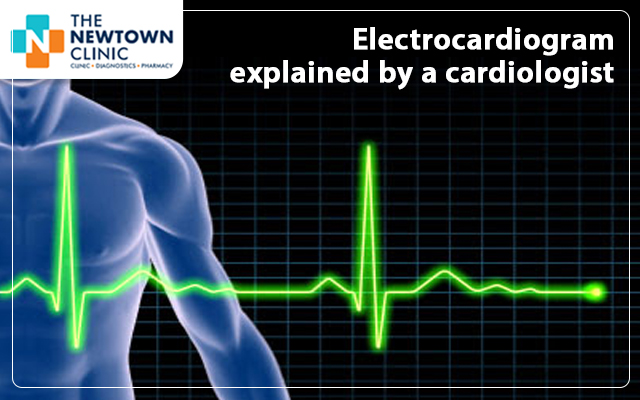What is Electrocardiogram?
When you visit a doctor with symptoms like – chest pain, fatigue, trouble breathing or irregular heartbeats – he/she may suggest an ‘electrocardiogram’, also known as ECG or EKG. So what is it?
A Cardiologist doctor in Kolkata explains that an electrocardiogram is a simple 10-minute test that monitors, measures and produces a graphical representation of your heartbeat. It helps your doctor determine the reason behind your symptoms and what type of treatment might be necessary.
If you are in your 50s or if you have a family history of heart disease, your doctor may also suggest an EKG to look for early signs of heart disease.
Electrocardiogram Procedure
EKG is a quick and simple test which does not demand much from the patient. Here are the steps explained by a heart specialist doctor in Kolkata –
- Upon your visit to a clinic, the first thing that you need to do is to change into a gown
- A technician may shave some areas of your chest, arms and legs
- 12 to 15 soft electrodes will then be attached to your chest, arms, and legs with a gel. Each electrode is about the size of 25 mm and is attached to the EKG machine with electrical leads (wires)
- Lie still on a table while the EKG machine records and prepares a graph representation of your heart’s electrical activity. Breath normally and do not talk during the test.
- After the procedure completes, the electrodes are removed and discarded. The entire procedure takes about 10 minutes
Types of EKG
You may experience some heart problems which is not persistent. It may come and go. Heart specialist in Kolkata says that, in these cases, you may need longer or more specialized monitoring like –
Stress Test
Some heart problems may only appear at the time of exercise. In order to simulate such a circumstance, your doctor may suggest a stress test. Stress test means an EKG while you’re exercising. This test is done while you exercise on a treadmill or stationary bicycle.
Holter Monitor
A Holter monitor records your heart’s activity over the course of 24 to 48 hours. You will need to maintain a diary of your activity to help your doctor identify the cause of your symptoms. A pocket, battery-operated monitor records data from the electrodes attached to your chest.
Event recorder
Symptoms that are occasional may require an event recorder. It records your heart’s electrical activity just when symptoms occur. There are automatic event recorders that activate when they detect symptoms. Some of them require you to push a button upon feeling the symptoms. The recorded information can then be directly sent to your doctor over a phone line.
EKG in 10 minutes
Need an EKG? Consider a visit to The Newtown Clinic. We provide you with precise results of your heart activity in 10-minutes, with dedicated technology for cardiology. Our experienced heart specialist doctors will supervise every test and monitor your health conditions. We provide the results on the same day and if necessary, can also deliver the reports to your home.

